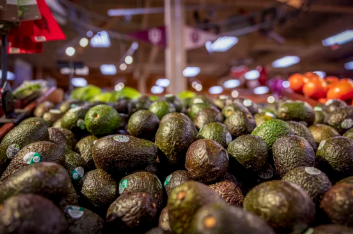About 40% of the fresh vegetables and 60% of the fresh fruit in the United States are imported.
Mexico is the largest contributor to the countries of origin for those products, so if President-elect Donald Trump fulfills his recent pledge to impose a 25% tariff on all goods imported across the southern border, U.S. consumers may have to pay more for a variety of produce and grocery items.
Mexico is the United States’ top foreign supplier of bell peppers, strawberries, raspberries, avocados, tomatoes, and avocados, according to data from the University of California, Davis.
According to the U.S. Department of Agriculture, Mexico accounted for 51% of U.S. fresh fruit imports and 69% of U.S. vegetable imports overall in 2022. The value of Mexico’s horticulture exports to the United States increased fourfold between 2000 and 2021.
Beer falls under those categories, and given the popularity of Corona and Modelo, the latter of which is now the most popular beer in the United States, a significant portion of American drinkers may also have to pay more.
Mexico has benefited as a supplier of food to the United States due to reduced labor costs, which are often one-fifth of what agricultural workers in the United States are paid, and more favorable seasonality, which means that in certain situations, the items arrive fresher since they can be farmed all year round.
Trump has maintained that any tariffs his administration attempts to implement will be borne by the nations of origin. However, according to economists, such expenses would typically be borne by the importing corporations, who are theoretically located in the United States. In many cases, these companies would then pass those costs on to their end users, which would be American consumers.
The same analysts, however, are still warning that Trump’s proposed tariffs, which would impose 25% charges on Canadian imports and an extra 10% tax on Chinese goods, would cause inflation to spike higher. Goldman Sachs analysts predicted in a recent report that Trump’s most recent proposals will raise inflation by over 1%.
However, the experts also emphasized that Trump’s declaration seems more like a “negotiating tactic” than a commitment to take action. Notably, his most recent remarks suggested a lower tariff level than the one he suggested during his campaign, at least with regard to China.
American shopkeepers, however, believe Trump is not kidding. Walmart’s chief financial officer stated last week in an interview with CNBC that the big-box retailer was preparing for perhaps higher costs for its patrons.
John David Rainey stated, “We never want to raise prices.” “We use daily cheap costs as our model. However, there will most likely be instances where customers will pay more.





